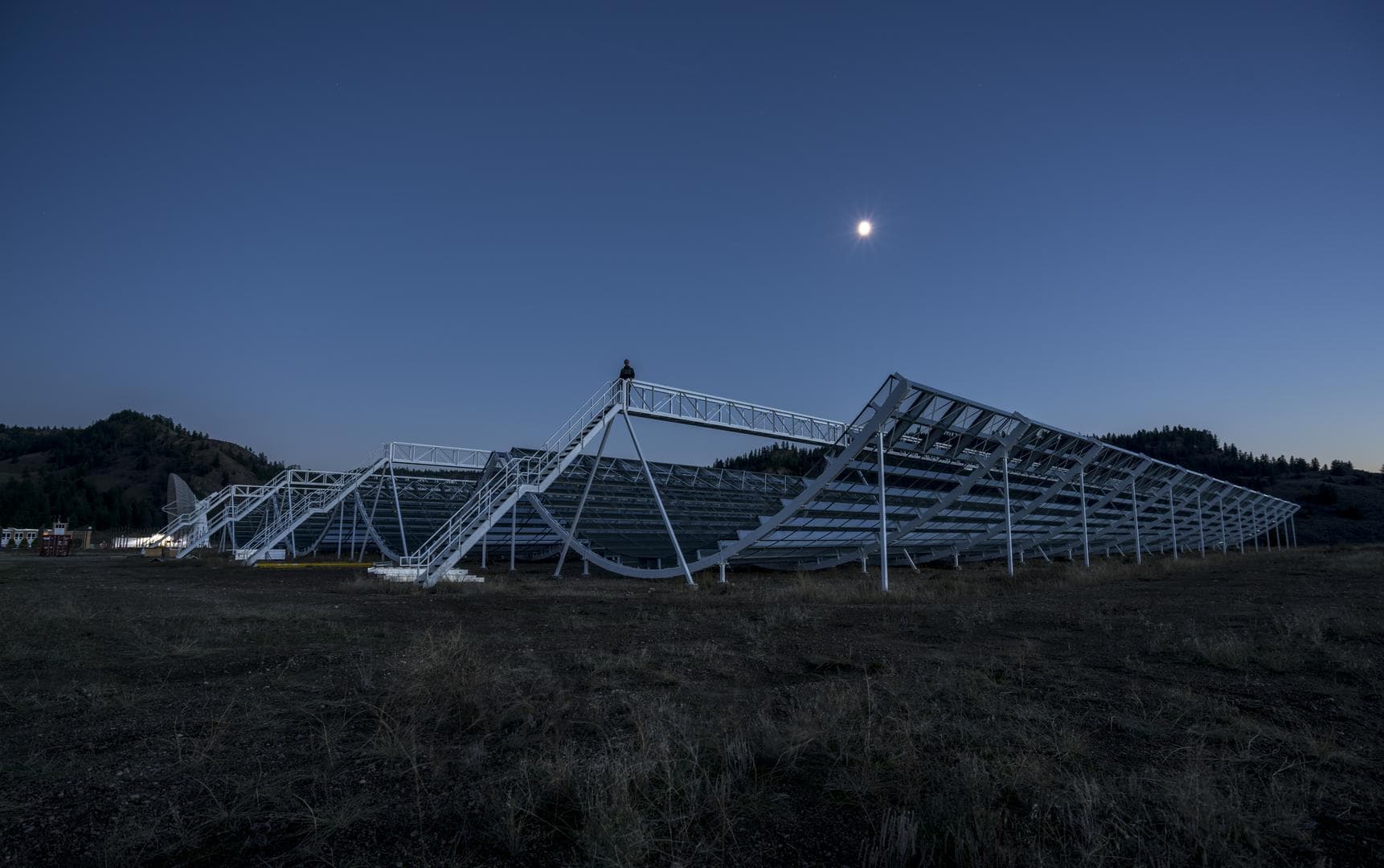UBC physicists share major Canadian collaborative research award
October 25, 2022

October 25, 2022

University of British Columbia (UBC) members of the Canadian Hydrogen Intensity Mapping Experiment (CHIME) are among the leaders in cosmology, pulsar research and high energy astrophysics that were recognized today with the 2022 Brockhouse Canada Prize.
The NSERC prize recognizes highly collaborative interdisciplinary teams of Canadian researchers who combine their expertise to produce achievements of outstanding significance in the natural sciences and engineering.
The winning team includes Dr. Mark Halpern, Dr. Gary Hinshaw, Dr. Ingrid Stairs and Mandana Amiri of UBC, along with colleagues at the University of British Columbia Okanagan, McGill University, the University of Toronto, and the Perimeter Institute for Theoretical Physics.
The CHIME team designed and built one of the most novel radio telescopes in the world—it has no moving parts, and forms an image of the entire overhead sky each day by digitally processing the information received on a compact array of 2,048 radio receivers as the Earth rotates.
The telescope is located in the mountains of British Columbia’s Okanagan Valley at the National Research Council’s Dominion Radio Astrophysical Observatory near Penticton. CHIME has made huge strides in improving detection of fast radio bursts and has increased researchers’ understanding of the mysterious astronomical phenomena. It is also a vastly improved tool for measuring the cadence of pulsars, the best clocks in the Universe.
The CHIME team was also credited by the award panel with created a progressive training environment for students, postdoctoral fellows and research associates, with the team proudly including members of underrepresented groups in physics.
The prize includes a team research grant of up to $250,000.
We honour xwməθkwəy̓ əm (Musqueam) on whose ancestral, unceded territory UBC Vancouver is situated. UBC Science is committed to building meaningful relationships with Indigenous peoples so we can advance Reconciliation and ensure traditional ways of knowing enrich our teaching and research.
Learn more: Musqueam First Nation